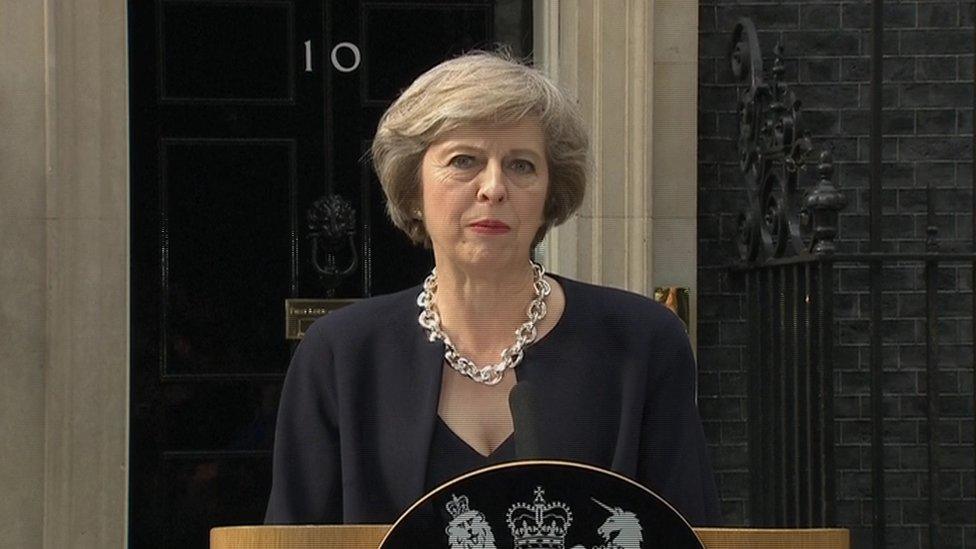Foster and McGuinness in Brexit talks call
- Published
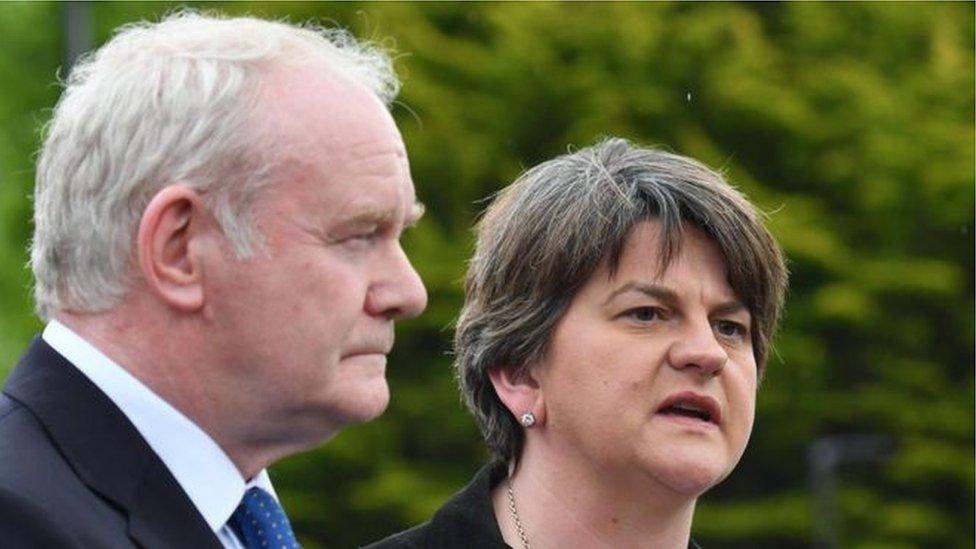
Martin McGuinness and Arlene Foster identified their five key priorities in a letter to Prime Minister Theresa May
The first and deputy first ministers have said they must be fully involved in negotiations regarding the UK's future relationships with the EU and other countries.
Arlene Foster and Martin McGuinness have written to Prime Minister Theresa May, external laying out their priorities.
In the letter, they identify five key areas.
They are the border, trading costs, the energy market, drawdown of EU funding and treatment of the agri-food sector.
The first and deputy first ministers said Northern Ireland was unique as the only part of the UK that has a border with an EU member state.
The border must not become a catalyst for illegal activity or create an incentive for those who wish to undermine the peace process, they added.
While the UK as a whole voted to leave the European Union by 52% to 48%, 56% of people in Northern Ireland voted to remain.
During the EU referendum, Arlene Foster's party, the Democratic Unionist Party (DUP), campaigned in favour of Brexit, while Martin McGuinness's Sinn Féin wanted to stay in the European Union.
When it comes to the economy, however, both leaders said they wanted to "retain as far as possible the ease with which we currently trade with EU member states".
'Uniquely vulnerable'
Both politicians also emphasised the need for Northern Ireland to "allow access to unskilled as well as highly skilled labour".
They said this was necessary for both private and public sector employers who are "heavily dependent on EU and other migrant labour".
The letter also refers to the "many thousands of people who commute each way across the border to work on a daily basis".
The first and deputy first ministers also registered their concerns about Northern Ireland's access to energy, EU funds and agricultural support.
They stated in the letter that Northern Ireland receives approximately 10% of the UK's cash from the Common Agricultural Policy (CAP), and acknowledged that the agri-food sector is "uniquely vulnerable both to the loss of EU funding" or to other barriers to trade.
The Stormont ministers said they want to play their part in any engagement between the British and Irish governments in relation to the border.
They said they were "reassured" that the prime minister has given a commitment that Northern Ireland would be fully involved and represented in negotiations.
However, they added that they recognised "the possibility that it cannot be guaranteed that outcomes that suit our common interests are ultimately deliverable".
- Published18 July 2016
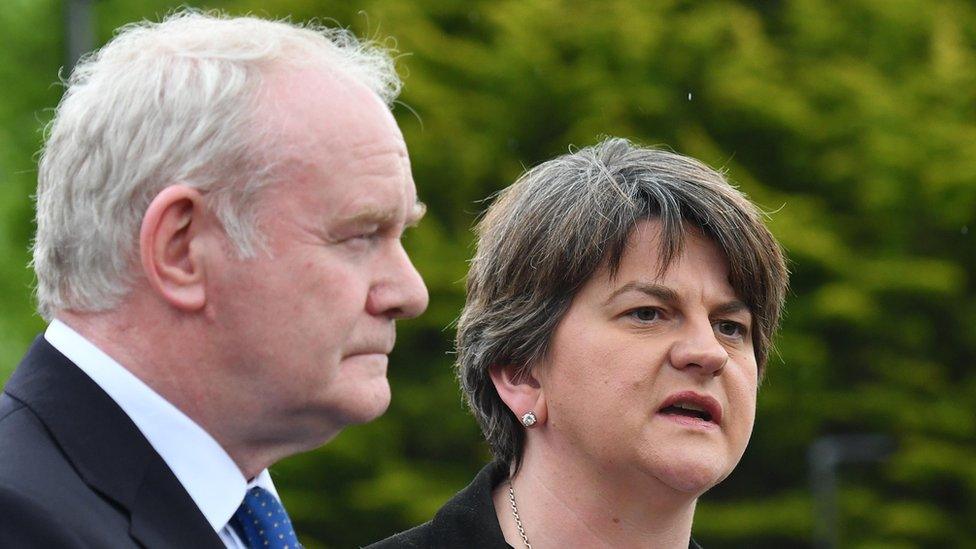
- Published17 July 2016
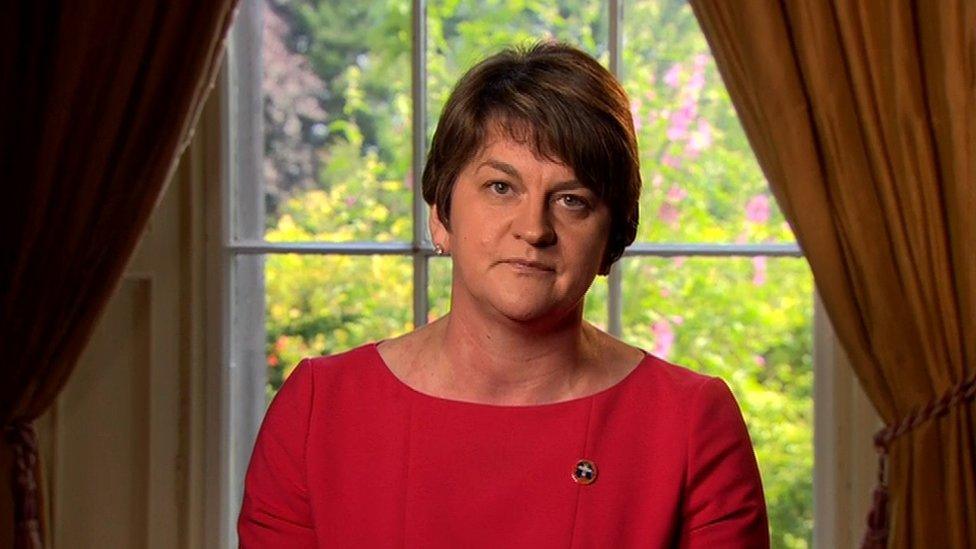
- Published15 July 2016
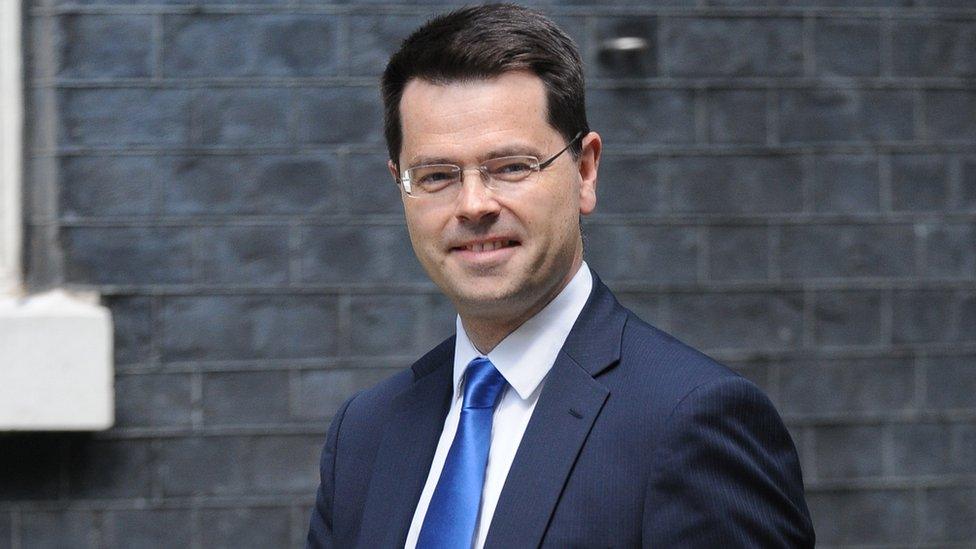
- Published13 July 2016
